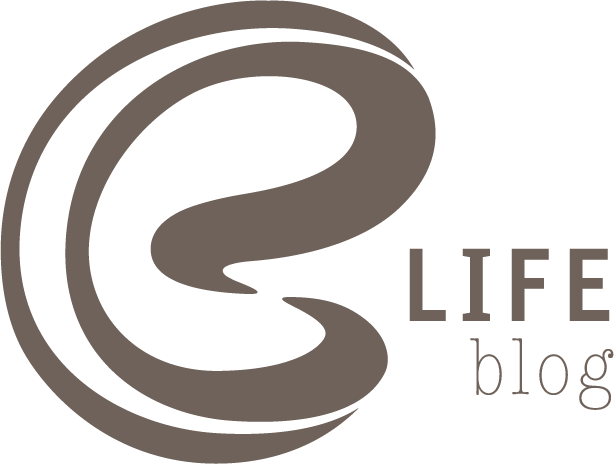Leadership today no longer focuses solely on managing tasks and responsibilities; it’s also shaping organizational culture and revealing employee potential. In the contemporary business world, leaders must do more than meet targets, they must also contribute to employee well-being and development and establish a safe work environment that encourages innovation.
Our understanding of what leadership embodies has evolved from a person exercising authority to one that encourages collaboration, empathy, participation, and empowerment. Innovation and high performance are only possible if leaders foster psychological safety in their teams. Achieving this environment requires that leaders engage in open communication, promote a feedback culture, encourage employees to take initiative, and accept that making mistakes is an opportunity to learn.
In this Eczacıbaşı Life blog, Academic, researcher, and writer Prof. Dr. Zeynep Aycan, who works in the fields of organizational behavior and leadership, and İlkay Yıldırım Akalın, Corporate Communications Coordinator at Eczacıbaşı Holding, talk about the role of leaders in the transition from a power culture to an empowerment culture and the importance of psychological safety.
İlkay Yıldırım Akalın
We became familiar with your work through your 2021 book, Next Generation Leadership: Transforming the Culture of Power to Empowerment. Your research focuses on the effects of culture on leadership, human resources management, and work-life balance. Could you explain what you mean by an empowerment culture?
Prof. Dr. Zeynep Aycan
I describe an empowerment culture as an environment in which people are free from fear of authority or failure, where they can engage in work that has meaning they understand and believe in, feel psychologically safe, enjoy themselves, and share leadership responsibilities.
Although there are many definitions of an empowerment culture in literature, it’s still not fully understood. That’s why I want to explain it using a metaphor. When we go to a gym to strengthen our bodies, what do we do? We lift weights to build our muscles. That exercise is crucial. After I wrote my book, I noticed from the feedback that when I used terms like “psychological safety,” “enjoyable,” “flexible,” and “comfortable” work environments, people tended to ignore the aspect of “lifting weights” - taking responsibility, taking risks, speaking up. It’s almost as though we don’t want a power culture, yet we aren’t courageous enough for an empowerment culture, either. While wanting to reduce the heavy pressure, fear, and anxiety of a power culture, some people don’t fully grasp that an empowerment culture requires them to take responsibility, take risks, speak up, and share leadership.
İlkay Yıldırım Akalın
Is this difference in understanding specific to Turkish culture and similar cultures, or does it occur everywhere?
Prof. Dr. Zeynep Aycan
We see it everywhere, but it appears more often in countries used to a power culture, such as Türkiye. In countries like ours, the power culture can be a comfort zone. Yes, we complain about it, and we find it oppressive, but at the same time we rely on its convenience. How so? By leaning on leaders who might be described as charismatic, authoritarian, paternalistic. There is also a kind of learned helplessness, a sense that you can’t change anything, which paradoxically creates comfort. This gives a new perspective to the idea of a “comfort zone,” and understanding it is very important. It’s easy to continue complaining about work without taking much action.
So, in the shift from a power culture to an empowerment culture, leaders are not the only ones who need to take responsibility. Of course, we do need a very different leadership approach, and leaders have great responsibility in this regard, but I’m also calling on teams and everyone in the workplace to do their part. All of us need to move into adult mode. If a paternalistic or maternal authority figure treats team members like children and says, “I can both love you and punish you,” we don’t really have the right to complain. Because no matter how much we change leaders, if employees stay in the comfort of the “child” mindset and fail to shift into adult mode, that transformation will not happen.
We absolutely need to be in sync during this transformation journey. It requires a collective movement like a flock of starlings, one that emerges spontaneously, with everyone aware of their roles and responsibilities while sharing leadership in harmony.
İlkay Yıldırım Akalın
What impact does leadership and an empowerment culture have on an organization? Why do we need an empowerment culture?
Prof. Dr. Zeynep Aycan
The first thing an empowerment culture affects is innovation. In a power culture, people don’t take risks or use their creativity. Power culture is the biggest threat to sustainability, not only environmentally but also economically and socially. For a sustainable world, we need to shift from an “ego” culture to an “eco” culture. An ego culture is a power culture, where you find unproductive competition between people and passive-aggressive behaviors like resentment, sulking, taking offense, and talking behind people’s backs. In an eco culture, a person understands they’re not alone and that they’re part of nature. They recognize that living in harmony with everything around them, including other people, and growing together is both a necessity and a virtue. This transformation is therefore essential for innovation, agile organizations, and sustainability.
İlkay Yıldırım Akalın
Employee well-being is also a key topic, of course. How does an empowerment culture affect employee well-being?
Prof. Dr. Zeynep Aycan
Moving from a power culture to an empowerment culture consists of five key steps: finding motivation through meaning, creating enjoyable work environments, establishing psychological safety, reducing the fear of failure, and sharing leadership.
The first four concepts—up until sharing leadership—are directly related to employee well-being. If this infrastructure hasn’t been designed or structured properly, you can’t build shared leadership on top of it. If you do, it will generate anxiety. Because suddenly you find yourself with authority and responsibility, but you haven’t overcome your fear of failure or achieved psychological safety, and that undermines well-being. There must be a proper sequence to it.
İlkay Yıldırım Akalın
At the center of it all is the concept of psychological safety, which you emphasize often. What is psychological safety, and what must leaders do to create a climate of psychological safety?
Prof. Dr. Zeynep Aycan
Psychological safety is a concept introduced by Amy Edmondson from Harvard Business School.
In the simplest terms, psychological safety means not dragging your feet on your way to work. It describes a setting where, upon arriving, you can be who you are without wearing a mask, and you can turn that authentic self into performance. If there’s no performance expectation from the person themselves or from the company, then the workplace turns into a social club. The environments we most advocate are those where the performance expectation is high and psychological safety is also present. Psychological safety does not mean “I’m comfortable and not doing any work.” Rather, it means being able to meet and even exceed performance expectations in tasks you find meaningful, while also feeling relaxed, peaceful, and free in how you work.
As Jensen Huang, founder and CEO of Nvidia, puts it, “Leadership is about setting the stage for others to shine.” A psychologically safe environment is one where you can use your potential, be yourself, and shine through your performance.
İlkay Yıldırım Akalın
In our time of multiple, often global crises, dealing with these various layers is critical for leaders. At the heart of it all is the human factor. In this context, how do you see the definition of leadership evolving? How can leaders manage uncertainty? How can they maintain their own sense of internal depth?
Prof. Dr. Zeynep Aycan
First of all, a leader must be able to lead and transform themself. If someone can’t change their own power culture-related values and perspectives, they can’t transform others. Hence, in my opinion, effective leadership starts with self-leadership. Has this leader questioned themself, transformed themself, made progress on their own inner journey? These points are extremely important. As far as I’m concerned, people who haven’t confronted their own fear of failure or learned to manage it shouldn’t be leading others. Such a leader will end up being oppressive and will cling to power-culture codes.
A leader should step back and look at their environment from outside. What distinguishes a leader from a manager is the ability to see the big picture without getting lost in the details, to imagine the future and shape the present accordingly. That doesn’t mean they shouldn’t attend to current issues. But if they get caught up in micromanagement, constantly putting out fires, they waste their leadership potential. Moreover, if the leader solves every problem themself, those around them do not grow. When people bring their issues to the leader and the leader immediately steps in, calls around, and solves the problem, then individuals haven’t come up with solutions themselves or strengthened their own “muscles.”
If we think back to the gym metaphor I mentioned before, you wouldn’t say, “You lift the weights, I’ll just watch and somehow get stronger.” You have to lift the weights yourself. You’ll feel pain while doing it, you may feel bad, but you will grow, develop, and get stronger.
We sometimes consider “employee well-being” to mean that people should never feel bad. But there would be no growth or progress that way. It’s a balance. We have to let people “lift the weights.” The same way it’s not good parenting to hover over a child -“Don’t let them fall, don’t let them catch cold”- it’s a mistake as well in business for a paternal or servant leader to constantly attend to every issue.
It is also very important for a leader to provide effective feedback. I’m thinking of writing a new book on a concept I describe as “emotion-neutral, message-clear.” In other words, conveying our message straightforwardly without creating drama or pulling everyone into an emotional vortex. Such an emotional vortex happens when people display exaggerated emotions, pulling everyone else into those emotions. Don’t create an emotional vortex, and don’t get sucked into someone else’s. Professionalism means not taking feedback personally. When you see that someone is taking feedback personally and creating drama, try not to get pulled into that emotional vortex. That’s the “emotion-neutral” part. The other side is giving a clear message without circling around it. We should communicate our message and feedback plainly so that it truly benefits people, helps them grow, and empowers them.
İlkay Yıldırım Akalın
In this cultural transformation, what kinds of barriers do we generally encounter, and what opportunities and threats might we face especially in Türkiye?
Prof. Dr. Zeynep Aycan
There are barriers in both directions, in giving power and in receiving it. Even though people complain about a power culture, it remains a comfort zone. Moving toward empowerment requires extra effort and risk-taking. I think that is the biggest barrier.
There are also cultural codes. We need to question our paternal or maternal codes. The hardest barrier is realizing that cultural codes exist in the first place. It’s like a fish in the sea, unaware of being in water until it’s out of it. We often do not even realize these codes. They feel completely normal and right to us.
To give an example related to leadership: we believe that a leader must be physically imposing, charismatic, powerful, and articulate. This is a code we hold onto from our evolutionary roots; we believe such a person will protect and care for us. But in the complex environment of our day, this is no longer sufficient and can actually be harmful. So, we need to question our leadership codes. These are power-culture codes. We assume quiet, introverted people cannot be leaders. However, new research reveals that introverted individuals can sometimes lead more effectively than charismatic leaders. Empowerment culture’s leadership codes are entirely different. In an empowerment culture, a good leader is someone who speaks little and listens a lot, stays calm, asks questions, openly admits mistakes, and focuses on the team. For instance, we get surprised if a leader admits to making a mistake. We might not like it; we might question their competence. But there are now entirely different codes when it comes to leadership, and we need to understand and question them, then decide which ones we will choose. Which code do I choose? Which leadership style do I want to be or work with?
As for opportunities, Türkiye has great potential because we’re very open to new ideas and we’re quick thinkers, fast learners, and strongly intuitive. We just need to be convinced. When Turkish people are convinced, virtually no obstacle can stop them from achieving their goals.
İlkay Yıldırım Akalın
What steps do you recommend for establishing an empowerment culture?
Prof. Dr. Zeynep Aycan
The first thing needed for transformation is motivating people through meaning. That is the first of the five stages. We need to explain to our teams why we do this work. Why are we on this journey? Why are we doing these tasks? What is the deeper meaning behind visible actions? How do we touch people’s lives?
Second, it’s necessary to create enjoyable work environments. You have to provide an atmosphere that relaxes people and increases their sense of enjoyment, so the fear and anxiety carried over from a power culture can melt away.
On that foundation, we can gradually overcome the fear of failure and establish psychological safety. In environments where people know the meaning of what they do and have fun, it’s easier to have the courage to be yourself, take risks, and not be afraid of making mistakes.
Once those four steps are in place, leadership can be shared. Picture it like a pyramid: at the base, motivating through meaning and creating pleasant work environments; above that, psychological safety and overcoming the fear of failure; and at the very top, shared leadership. Those are the steps of the journey toward empowerment.
Prof. Dr. Zeynep Aycan earned her bachelor's and master's degrees in Psychology from Boğaziçi University. She pursued her doctoral and postdoctoral studies in Canada, first at Queen’s University and then at McGill University’s Faculty of Management. Specializing in cross-cultural management, Aycan’s research focuses on the impact of culture on leadership, human resource management, and work-life balance.
She currently serves as a Professor of International Business and Organizational Behavior at Loughborough University Business School. Previously, she worked as a professor at Koç University, where she founded and directed the Koç University Leadership Lab.
Aycan has authored five published books and nearly 100 scientific articles and book chapters, most of which are in foreign languages. She is among the most highly cited researchers in her field. She has been invited as a visiting researcher and faculty member to prestigious institutions such as Harvard Business School, Aston Business School, Oxford European School of Management, Bordeaux University Business School, Tartu Business School, Jyväskylä University, and Renmin University.
She has received numerous national and international awards, including the TÜBİTAK Science Award, the Carolyn Dexter Award of the Academy of Management Conference, and the World Economic Forum Outstanding Young Scholar Award.
Her book, published in 2014, was recognized as the Best Leadership and Management Book of the Year by the Chartered Management Institute (London) and received the Ursula Gielen Global Book Award from the American Psychological Association. She has been honored with the title of "Fellow" by the Society for Industrial and Organizational Psychology (SIOP) and the Association for Psychological Science (APS) in recognition of her outstanding achievements. In Türkiye, she has been elected as a member of the Science Academy.





